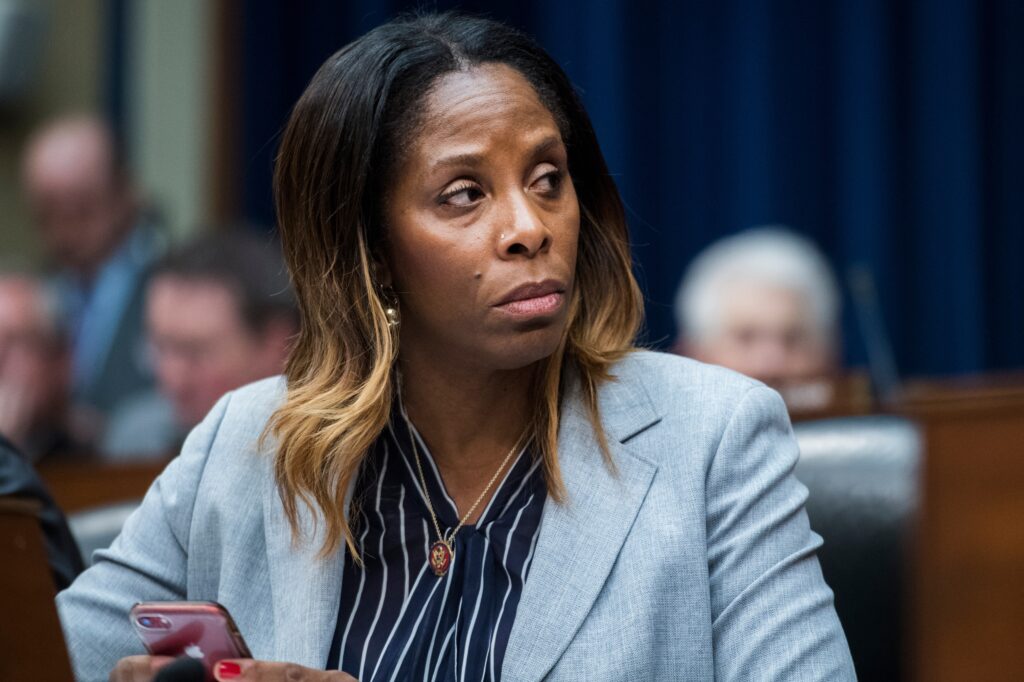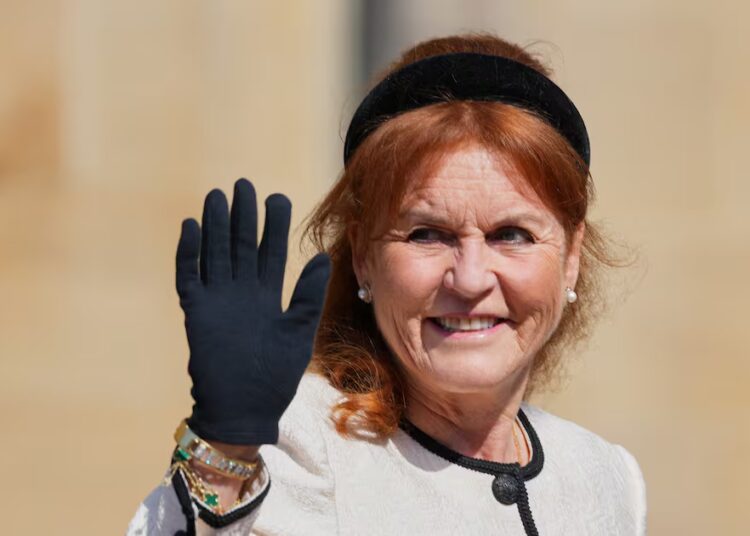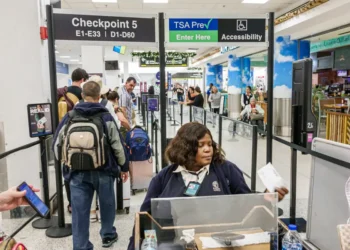The newly released documents from Jeffrey Epstein’s estate show that the convicted sex offender appeared to be texting with a member of Congress during a congressional hearing with Michael Cohen, President Donald Trump’s former personal attorney and fixer, and that those text messages may have influenced the lawmaker’s questions of Cohen.
The newly released documents from Jeffrey Epstein’s estate show that the convicted sex offender appeared to be texting with a member of Congress during a congressional hearing with Michael Cohen, President Donald Trump’s former personal attorney and fixer, and that those text messages may have influenced the lawmaker’s questions of Cohen.
In the texts, Epstein appeared to be watching the February 2019 hearing in real time and at one point informed the person he was texting — whose name is redacted from the documents — that Cohen had brought up former Trump executive assistant Rhona Graff in his testimony. At the time, Cohen was testifying before the House Oversight Committee against his former boss, alleging that Trump was racist, manipulated financial records and directed hush money payments to cover up his extramarital affairs — allegations Trump denied. The president said on social media that Cohen was “lying” before testimony began.
“Cohen brought up RONA – keeper of the secrets,” Epstein texted the person, misspelling Graff’s first name.
“RONA??” the person responded. “Quick I’m up next is that an acronym,” the person added, suggesting they would question Cohen soon.
“Thats his assistant,” Epstein replied.
The copies of the text messages were included in a trove of thousands of pages of documents containing Epstein’s emails and other communications released Wednesday by the House Oversight Committee. The messages show Epstein was invested in what Cohen was sharing about Trump, the financier’s former friend, during his testimony. Trump has provided different accounts about why he ended his decades-long relationship with Epstein and has tried to distance himself from the deceased sex offender, but he has previously denied knowing about Epstein’s abuse.
“I had no idea,” Trump told reporters in July 2019. “I haven’t spoken to him in many, many years.”
Though the name of Epstein’s texting partner is redacted in the documents, time-stamps on the text messages matched up with video from the hearing, as well as the messages’ contents, appear to indicate that Epstein was texting with Del. Stacey Plaskett, a Democrat who represents the U.S. Virgin Islands as its nonvoting delegate in the House of Representatives.
Reached by phone Thursday, Plaskett declined to answer questions about the text messages and directed all inquiries to her congressional staff. Plaskett’s chief of staff, Angeline Jabbar, said Thursday she was “not in a position to confirm or not” whether the congresswoman was texting with Epstein at the hearing.
At around 10:40 a.m. Eastern time on the day of the hearing, a broadcast feed cut to Plaskett, showing her moving her mouth as if she were chewing something.
At 10:41 a.m., Epstein sent this message to his texting partner: “Are you chewing”
“Not any more,” the person replied. “Chewing interior of my mouth. Bad habit from middle school”
At 12:50 p.m., Epstein asks his texting partner: “How much longer for you”
“Hours. Go to other mtgs,” the person replied.
The “Quick I’m up next” text to Epstein was sent at 2:25 p.m., minutes before Plaskett began questioning Cohen at 2:28 p.m. Epstein messaged “Good work” to his texting partner at 2:34 p.m., one minute after Plaskett finished her questioning of Cohen.
The text messages indicate Epstein may have influenced what questions to ask Cohen.
“Hes opened the door to questions re who are the other henchmen at trump org,” Epstein texted the unnamed person at 12:25 p.m.
“Yup. Very aware and waiting my turn,” the person responded.
When Plaskett questioned Cohen during the hearing, she asked about Trump associates that he had mentioned previously.
“Are there other people that we should be meeting with?” Plaskett asked.
“So Allen Weisselberg is the chief financial officer in The Trump Organization,” Cohen began to reply.
“You’ve got to quickly give us as many names as you can so we can get to them,” Plaskett interjected. “Is Ms. Rhona, what is Ms. Rhona’s— …?”
“Rhona Graff is the — Mr. Trump’s executive assistant … She was — her office is directly next to his, and she’s involved in a lot that went on,” Cohen replied.
Though Epstein would not be charged with federal sex trafficking crimes until July 2019 — several months after the Cohen hearing — he was already a known convicted sex offender, having pleaded guilty in 2008 to state charges in Florida of soliciting prostitution from a minor. Under a plea deal, he spent only 13 months in county jail.
In November 2018, the Miami Herald published an investigation into allegations of Epstein’s serial sex abuse and the handling of his 2008 sentencing agreement. Epstein was arrested in July 2019 on federal sex trafficking charges, accused of sexually abusing dozens of girls in his homes and paying his victims to bring him others. He pleaded not guilty and was found hanging in his Manhattan jail cell in August 2019, his death ruled a suicide.
Epstein had deep ties to the U.S. Virgin Islands, where he formerly owned a pair of private islands, Great Saint James and Little Saint James. His primary residence was on Little Saint James, where, according to a settlement in a lawsuit brought against Epstein’s estate by the U.S. Virgin Islands, “many of his crimes occurred.” A 2023 Business Insider investigation showed that Epstein donated large sums of money to U.S. Virgin Islands politicians, including to Plaskett.
After Epstein’s arrest in 2019, Plaskett’s office initially said she was unlikely to return her campaign donations from the disgraced financier, but reversed course after public backlash.
In 2023, six Epstein accusers sued government officials from the U.S. Virgin Islands, including Plaskett, alleging that they helped and benefited from Epstein’s sex-trafficking enterprise in the U.S. territory. The lawsuit against Plaskett was voluntarily dismissed with prejudice earlier this year.
In the motion to dismiss the lawsuit that was filed in July 2024, Plaskett’s lawyer wrote, “Epstein’s notorious crimes were reprehensible, and many women unquestionably suffered at his hands. Congresswoman Plaskett learned of Epstein’s crimes simultaneously with the rest of the country, when news of his arrest broke.”
Jonathan Edwards contributed to this report.
The post Epstein appeared to text with House member during Cohen hearing, documents show
appeared first on Washington Post.




